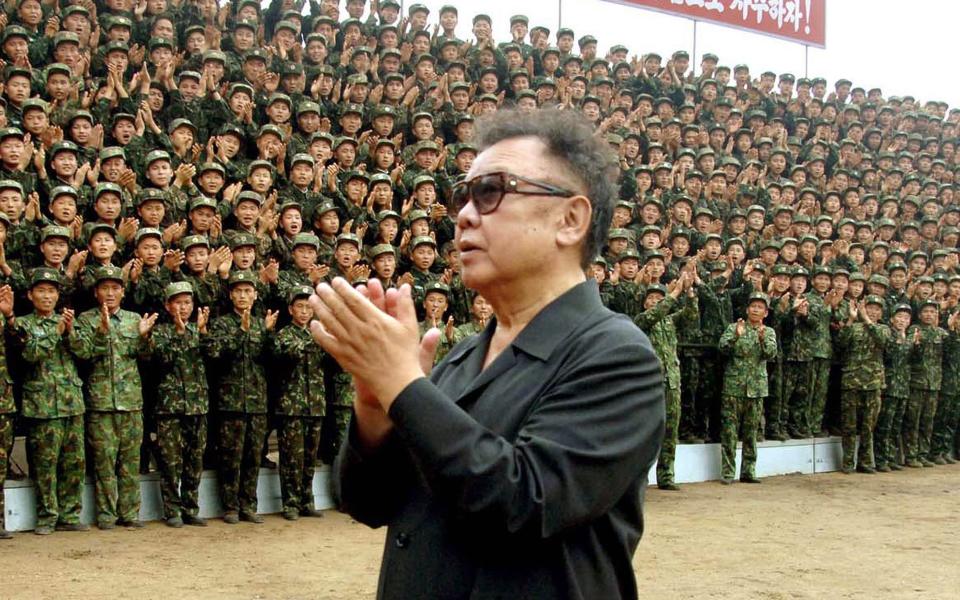North Korea bans laughing for 11 days of mourning for 10th anniversary of Kim Jong-il's death

North Koreans have been banned from showing any sign of happiness for 11 days in order to commemorate the 10-year anniversary of the death of Kim Jong-il.
The restrictions include an explicit ban on laughter and alcohol during the 11-day period of mourning. On the exact anniversary of Kim Jong-il’s death, December 17, North Koreans will even be banned from going grocery shopping.
“During the mourning period, we must not drink alcohol, laugh or engage in leisure activities,” a North Korean from the northeastern border city of Sinuiju told Radio Free Asia (RFA).
“Even if your family member dies during the mourning period, you are not allowed to cry out loud and the body must be taken out after it's over. People cannot even celebrate their own birthdays if they fall within the mourning period.”
Kim Jong-il, who ruled the kingdom from 1994 until his death from a heart attack in 2011 at the age of 69, was the father of the current Supreme Leader Kim Jong-un.
His rule coincided with one of the darkest periods in North Korean history - the famine of the mid-1990s which is euphemistically known as the ‘Arduous March’. It is estimated that as many as 3.5 million people died during a four-year period.

Mourning periods for Kim Jong-il and his father Kim Il-sung, considered to be the father of the nation, are observed annually. Ordinarily, these periods last ten days, but an extra eleventh day has been added this year to commemorate a decade since Kim Jong-il’s passing.
“In the past many people who were caught drinking or being intoxicated during the mourning period were arrested and treated as ideological criminals. They were taken away and never seen again,” the source said.
Police have been forewarned to look for those who do not look sufficiently upset, according to RFA, citing a second source from the southwestern province of South Hwanghae.
“From the first day of December, they will have a special duty to crack down on those who harm the mood of collective mourning,” said the second source speaking under conditions of anonymity.
“It’s a month-long special duty for the police. I heard that law enforcement officials cannot sleep at all.”
North Koreans are also required to make an extra effort to look after those who are hungry and impoverished during this time. North Korea is currently suffering from acute food shortages due to the coronavirus pandemic and economic sanctions, sparking fears of a second ‘Arduous March’.
“Residents must also work together to help out the kotjebi,” the second source said, referring to the growing number of North Korea’s homeless street beggars.
“Social order and safety must be ensured, so companies are responsible for collecting food to give to residents and employees who cannot come to work due to food shortages.”

The mourning period this year will consist of art exhibitions, a remembrance concert and an exhibit of the Kimjongilia flower, named after the departed leader, an official from the city of Tanchon told RFA.
However, a few locals have been brave enough to speak out anonymously against the annual tradition, saying the mourning period causes significant disruption to daily life.
“I just hope that the mourning period for Kim Jong-il will be shortened to one week, just like the mourning period for Kim Il Sung,” said one quoted by RFA.
“Residents are complaining that the living are forced to mourn these two dead people to death.”
At the time of Kim Jong-il’s death, pictures were broadcast round the world of citizens convulsing, crying and thumping the ground in mourning.
At the time, state news agency KCNA said millions of North Koreans were “engulfed in indescribable sadness.”

 Yahoo News
Yahoo News 
